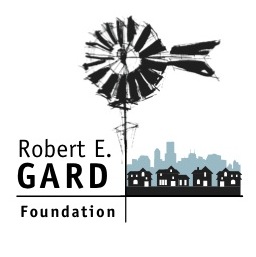 In advocating for community engagement work, one of the most important elements is identifying and sharing stories of examples of what works (and of projects that could have been improved). For years, the Community Arts Network (CAN) was a great source of such stories. Unfortunately they had to close up shop. Fortunately, the good work they did is still accessible in an online archive sponsored by Indiana University. (This is not just stories but all kinds of excellent resources related to the arts and community engagement.)
In advocating for community engagement work, one of the most important elements is identifying and sharing stories of examples of what works (and of projects that could have been improved). For years, the Community Arts Network (CAN) was a great source of such stories. Unfortunately they had to close up shop. Fortunately, the good work they did is still accessible in an online archive sponsored by Indiana University. (This is not just stories but all kinds of excellent resources related to the arts and community engagement.)
Recently, Springboard for the Arts announced a new project, Creative Exchange, designed to assemble stories about artists working in, with, and supporting communities. Serendipitously, a group with which I work is also ready to begin collecting stories. Ours will look for both individual artists and arts organizations partnering with their communities. I’ve spoken with Laura Zabel at Springboard and we are going to attempt to coordinate our efforts so that we can maximize the impact of the collected stories.
I serve on the board of The Robert E. Gard Foundation. Dedicated to fostering healthy communities through arts-based development, it is currently seeking stories from communities in which the arts have improved the lives of citizens in remarkable ways. These stories will be nominees for case studies to be included in the Foundation’s Fifty Year Anniversary (2016) update of Robert Gard’s Arts in the Small Community (http://www.gardfoundation.org/windmill/ArtsInSmallCommunity2006.pdf). (The update will include both rural and urban communities.) Other stories will be featured on the Foundation’s website and here in Engaging Matters. In addition, I may use particularly compelling examples involving established arts organizations in my next book.
Ideal candidates are community stories in which the arts serve as a centerpiece to enhance vitality, radically improve education, and/or significantly strengthen social bonds. In considering stories to submit, the following values of the Gard Foundation and of Robert Gard himself can serve as a guide. The Foundation will consider these in making its selections:
VALUES
- The arts spring from the commonplace and celebrate our essential humanity.
- Everyone should have the opportunity to participate in arts and cultural experiences.
- Each of us has the capacity to “alter the face and the heart of America.”
- The arts have the power to ignite change.
- The arts are an essential part of building healthy communities and meaningful lives.
- The arts play a vital role in placemaking.
Preference is given to programs/projects that reflect adherence to principles of good practice for community engagement:
- The arts experiences are tied to community feedback and growing relationships (i.e., the arts serve as the centerpiece of a broader, ongoing effort)
- The programs/projects address community issues (including the need for fun)
- The programs/projects demonstrate collaboration rooted in a mutuality of respect and benefit
- The programs/projects involve collaboration between an arts organization and an organization or group that does not have an arts mission
- The programs/projects involve participation by those who are not “typical” arts-goers, including those who have limited opportunity for participation in or access to the arts
- The work comes out of relationship-building (the relationship was developed first)
REMINDER: The lessons of Robert Gard’s work apply equally to rural and to urban communities. The Foundation actively encourages submission of stories from all communities and regions.
Nominations should include
- A 400-900 word description of the project(s), including location and origins,
- A 100 word summary
- A description of results and community impact
- A photo (landscape orientation is preferred) and/or video highlighting the work
- Optional: audio if no video is available
- Links to further information
- Permission for the Gard Foundation to use (and authorize use of) the material submitted (acknowledging that the individual submitting the material has rights to grant such permission)
Please submit your entries, with attachments, to stories@artsengaged.com.
Engage!
Doug
